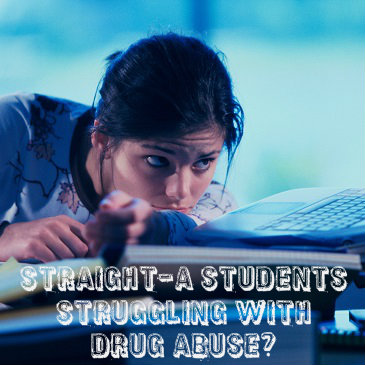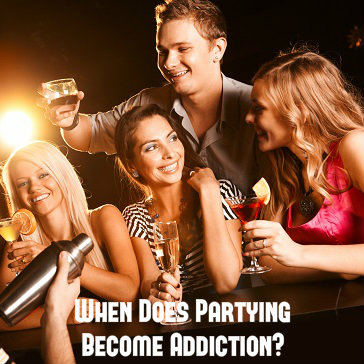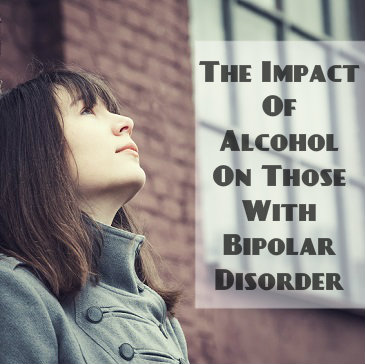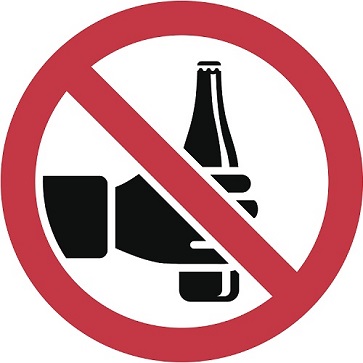08 Sep 2014
Straight-A Students And Substance Abuse
Countless parents have had this internal argument: My kid is a good kid. She gets all As at school. She’s an athlete. She couldn’t possibly be using drugs or drinking, right? Unfortunately, some of those parents are wrong. Good kids abuse substances too. Teenage experimentation with drinking or drugs doesn’t always look like the stereotypical burnout. All parents should be aware that substance abuse is everywhere and know the more subtle signs and symptoms.
Teens And Substance Abuse
The good news about teens abusing drugs and alcohol is that the trend is moving downward. Fewer teens drink, smoke, or use most illegal drugs than did a few years ago. Abuse of marijuana has been rising as the perceived risk of this drug goes down. Prescription drug abuse still makes up a significant part of teen substance abuse. Although use rates are declining for most drugs, many teens are still abusing substances and suffering the consequences. Nearly one-quarter of all high school seniors report having used marijuana in the last month, while 15 percent used a prescription drug non-medically.
 Numbers don’t lie. A lot of teens abuse substances. If you think that your teen is not using simply because she is a straight-A student or because she is popular and on sports teams, or because she is involved in several extracurricular activities, think again. No teen is exempt from the pressures that can lead to experimentation with drugs or alcohol, and many are good at hiding their substance abuse, especially from parents. Here are some of the more subtle signs to look out for in your teen:
Numbers don’t lie. A lot of teens abuse substances. If you think that your teen is not using simply because she is a straight-A student or because she is popular and on sports teams, or because she is involved in several extracurricular activities, think again. No teen is exempt from the pressures that can lead to experimentation with drugs or alcohol, and many are good at hiding their substance abuse, especially from parents. Here are some of the more subtle signs to look out for in your teen:
Teen Substance Abuse Signs
- Changes In Sleep Patterns: Drug and alcohol use impacts sleep in a number of ways. It can make someone sleep more or can lead to insomnia. Look for signs that your teen is staying up later than normal, sleeping in later than usual, or napping more frequently. Also be aware of any signs that she is often tired, such as yawning, bags under her eyes or sleeping in class.
- Missing Important Activities: If your teen is involved in a lot of activities, she may be able to drink or use drugs for a little while before it starts to impact them. Eventually, though, she will start to slide. It may be just a little bit at first. She might be late to one or two events when normally she is punctual. Maybe she decides to give up one of her less important activities.
- Physical Signs: Some of the effects of drug use can’t be covered up. Look for persistent coughing, bloodshot eyes, dilated or pinpoint pupils, an increased appetite, unsteadiness, unusually bad breath, unfamiliar smells or lethargy.
- Secrecy About Money: If your child has always been open about her money and what she spends it on, be concerned if she suddenly becomes secretive. If she doesn’t want you to see her bank account information or go through her purse, be aware that something may be up.
Good Students And Prescription Drugs
You may be right when you say that your straight-A teen would never drink, smoke pot or use street drugs to get high. What many parents of good students don’t realize is that certain prescriptions are abused for academic reasons. Prescription medications for ADHD are popular with ambitious students. These drugs are stimulants and high school and college students are abusing them in record numbers to stay awake and alert for studying and writing papers. Subtle signs of drug abuse in your teen may indicate she is using stimulants because of the pressure she feels to get good grades.
No matter how good your teen is or how successful she is in school, you cannot guarantee that she will not experiment with drugs or alcohol. Always be aware of the potential for abuse and spend time talking with your teen. Make sure she knows she can open up to you and you will be more likely to catch any problems before they go too far.
05 Sep 2014
Discover When Partying Becomes Addiction
Partying can be a fun way to relax and unwind on the weekends and—when done without drugs and only moderate alcohol intake—a healthy way to combat stress. If, however, you are the type of partier who uses illicit drugs or who binge drinks, you could be heading down a dangerous road to addiction, serious health problems and even death. It may be time to question your partying habits and take a hard look at your actions. Are you partying responsibly and moderately? Or are you getting out of control?
When Does Partying Become Addiction?
 Partying may be as innocent as hanging out with friends at a house party with a couple of beers or going to a club for a few hours of dancing, but it can also mean using club drugs, drinking excessively, and making dangerous choices. You may even start partying and using what are considered to be non-addictive club drugs just once a week, but then find that you want to do it more and more. How do you know when you have crossed the line from a fun night out to going out of control and heading down the path to addiction?
Partying may be as innocent as hanging out with friends at a house party with a couple of beers or going to a club for a few hours of dancing, but it can also mean using club drugs, drinking excessively, and making dangerous choices. You may even start partying and using what are considered to be non-addictive club drugs just once a week, but then find that you want to do it more and more. How do you know when you have crossed the line from a fun night out to going out of control and heading down the path to addiction?
Here are some signs of addiction to watch for:
- You daydream about and crave the high you get when using a party drug or binge drinking. When you start to plan your party binges during the day and look forward to them more than once a week, you should be concerned.
- You develop a tolerance. In other words, you need more and more of a drug or alcohol to achieve the high and the euphoria that you crave.
- You start to use drugs or alcohol more often and in greater quantities. With tolerance comes the desire to use more. Be concerned if you start to increase the frequency of drug use or drinking in order to chase your high.
- You make poor decisions while under the influence. A serious aspect of problem drinking and drug abuse is engaging in risky behaviors that negatively impact your life. If you continue to use after getting sick from substance abuse, after missing work, or after getting into legal trouble, you have a problem.
Can You Turn Your Partying Around?
If you are beginning to question how much and how hard you party, you are in a good position to turn things around. Start cutting back right away. If it helps, do so in small steps. Eliminate one night of partying each week. On the nights that you do party, reduce your consumption of drugs or alcohol. Sometimes going cold turkey is not the most successful way to cut back.
Use your friends to help you stay focused on your mission to slow down. Tell everyone that you intend to cut back and ask for support. If any of your friends encourage you to party in spite of your declaration, they don’t have your best interests in mind and you need to let them go. For your nights off from partying, find sober friends to spend time with and engage in fun activities that don’t involve drinking or drugs.
If you try to cut back and find that you can’t do it, you may be further down the road than you thought and you may need professional help. Find an experienced substance abuse counselor or turn to a local support group for more resources. With professional help and the support of your friends and family, you can turn your life around before it is too late.
Individuals with a mental disorder often have a co-existing condition, such as depression, anxiety, or often, a substance use disorder. Alcohol or drugs are frequently used to medicate the symptoms of a mental disorder. But the presence of a substance use disorder can make treatment more complicated and can delay the reduction in symptoms.
Altered Mismatch Negativity
 In an article appearing in Clinical Psychiatry News, researchers in Australia examined the impact of risky alcohol consumption among those with bipolar disorder, as compared with nondrinkers. The study found that there was a phenomenon known as “altered mismatch negativity” on electroencephalography (EEG) exams among those with risky drinking histories.
In an article appearing in Clinical Psychiatry News, researchers in Australia examined the impact of risky alcohol consumption among those with bipolar disorder, as compared with nondrinkers. The study found that there was a phenomenon known as “altered mismatch negativity” on electroencephalography (EEG) exams among those with risky drinking histories.
According to the article, mismatch negativity is the brain’s automatic electrical activity that responds to auditory stimulation when there is a change in sounds. When there is a reduction in mismatch negativity, it indicates an impairment of NMDA-receptor activation. The NMDA receptors were already thought to be impacted by both alcohol use and in patients with bipolar disorder.
To measure the mismatch negativity in individuals with risky alcohol use and bipolar disorder, the researchers recruited 42 bipolar disorder patients and 34 control subjects. The participants were between the ages of 16 and 30. The participants were subjected to EEG exams with auditory stimuli.
Among the participants, 16 bipolar patients engaged in risky alcohol-related behaviors, as well as 14 of the control subjects. Of the remaining patients, 26 of the bipolar subjects and 20 of the control subjects did not engage in risky drinking.
Misuse Of Alcohol In Those Who Are Bipolar
The researchers found that the misuse of alcohol was a strong predictor of attenuations in mismatch negativity. The effect was significantly more profound among those diagnosed with bipolar disorder. The researchers believe that the alcohol may play an antagonistic role on the NMDA/glutamatergic system. This is consistent with the growing use of glutamatergic agents to treat bipolar disorder. Limiting alcohol consumption may be an important step when beginning treatment with glutamatergic agents.
The article notes recent studies showing that bipolar males between the ages of 20 and 30 have the highest weekly substance use. In more general terms, those who are diagnosed with bipolar disorder before adulthood have lifetime alcohol use rates of up to 70 percent.
The researchers note multiple potential limitations on their findings. For instance, the youths included in the study are not able to legally buy alcohol in Australia, so the underage drinkers may have had incentive to understate drinking behavior.
The study adds to the body of evidence that shows that bipolar disorder patients are particularly susceptible to the dangers of risky alcohol consumption.
Discover Why Integrating Medical And Mental Health Treatment Is Crucial
The effects of synthetic marijuana are as varied as the substances that make up this broad category of drugs. Makers of synthetic marijuana products attempt to create something that is legal and that also mimics the active compounds in cannabis. Of course, most of these manufacturers are more interested in profits than safety and the ill effects of using them are multiple. Popular with young people, these products have finally come to the attention of lawmakers who have attempted to put a stop to their sale. Drug makers always find a way around the laws, however, so it is important for parents and other adults to be aware of synthetic marijuana and how harmful it can be.
What Is Synthetic Marijuana?
 Fortunately for public health, most of these products have been outlawed, but they have not gone away. Marijuana comes from a plant called cannabis. It contains thousands of natural compounds, some of which have mind-altering abilities. It is for these compounds, called cannabinoids, that people smoke marijuana. They give the user a pleasant, sleepy, relaxed feeling. As a mind-altering, psychoactive product, marijuana is illegal in most places.
Fortunately for public health, most of these products have been outlawed, but they have not gone away. Marijuana comes from a plant called cannabis. It contains thousands of natural compounds, some of which have mind-altering abilities. It is for these compounds, called cannabinoids, that people smoke marijuana. They give the user a pleasant, sleepy, relaxed feeling. As a mind-altering, psychoactive product, marijuana is illegal in most places.
In an attempt to profit from the demand for marijuana, manufacturers have developed products that contain synthetic versions of the natural cannabinoids. They spray the formula onto some type of dried plant and sell it as incense, potpourri or even cleaners. These products are labeled in a way that makes it seem as if it is not a drug to be smoked. Of course, the intention is exactly that. Young people are enticed to buy it and smoke it, and then they suffer the synthetic marijuana side effects.
How Is Synthetic Marijuana Dangerous?
Real marijuana poses health risks, but the synthetic versions can be even more harmful. The main problem is that you can never be sure what is in the product. Marijuana is a natural product that is dried to be smoked. Synthetic versions may contain a whole host of compounds that the makers do not reveal. Some of the synthetic marijuana health effects that have been seen in users include anxiety, paranoia, shaking, emotional instability, hallucinations, panic attacks, dizziness, hot flashes and convulsions.
After too many teens and young adults were harmed from using synthetic marijuana products, lawmakers took action to ban the substances used to make them. Unfortunately, there are almost infinite possibilities when it comes to making synthetic variations of cannabinoids. When one substance is banned, drug manufacturers simply come up with another one. In most states, you can no longer buy the products that were disguised as potpourri or herbal smoking blends, but that does not mean synthetic marijuana has disappeared. Some people are still using it and are experiencing the ill effects. Be aware of this lab-produced drug and make sure that your children understand its risks.
Learn More About Synthetic Drugs And Their Dangers!
A long-standing philosophy of alcoholism treatment has been that total abstinence is necessary and that there is no possibility that someone with a drinking problem could handle moderate drinking. Today we know a lot more about addiction thanks to research and we know that it is more complicated than was previously thought. So, is it possible for a problem drinker to continue drinking responsibly and in moderation? Or is abstinence the only way to go?
What Does Moderation Mean?
 One immediate problem comes to mind when debating the possibility of moderate and responsibly drinking, and that is how to define it. Many problem drinkers and alcoholics are in denial about how much they drink and how much of an issue it is. It is not difficult to imagine that an alcoholic attempting moderation would use it as an excuse to keep drinking all the while claiming his habit was surely moderate.
One immediate problem comes to mind when debating the possibility of moderate and responsibly drinking, and that is how to define it. Many problem drinkers and alcoholics are in denial about how much they drink and how much of an issue it is. It is not difficult to imagine that an alcoholic attempting moderation would use it as an excuse to keep drinking all the while claiming his habit was surely moderate.
At a basic level moderation means setting reasonable drinking limits and sticking with them. According to the organization Moderation Management, which guides problem drinkers toward reducing their alcohol consumption, men should have no more than four drinks at one time and no more than 14 per week. For women, that amount is three at once and no more than nine per week. Both men and women are supposed to restrict drinking to three to four days each week.
Does Moderation Work For Problem Drinkers?
There are many proponents of moderation who claim that problem drinkers can more successfully establish a healthy relationship with alcohol by moderating than by abstaining. Research does seem to support this viewpoint. One study included participants, all of whom were problem drinkers to varying degrees, who attempted to moderate their habit rather than stop drinking completely. They used a website application designed to guide them through the process. Some used a simple website, while others used an interactive application.
The problem drinkers that used the website alone were able to raise their abstinent time during each month by about four percent. On days they did drink, their blood alcohol content dropped by 50 percent or more, which indicates that they reduced the amount of drinks significantly. For participants using an interactive application, the number of days without drinking at all doubled. Those that used both tools were able to reduce their drinking to fully moderate levels across the board.
Can True Alcoholics Drink Responsibly?
The study that showed moderation could be successful included some very heavy drinkers. However, they did not include people who experienced withdrawal, a key characteristic of alcoholism. So far there is little to no evidence that moderation could be possible for anyone who is seriously dependent on alcohol. In fact, many experts are in agreement that trying to drink moderately could be dangerous for true alcoholics.
This doesn’t mean that moderation is not a great way to help many people. Among all people who have a problem with drinking, most of them have not yet crossed the line into alcohol dependence. If these people can be reached with tools to help them change their drinking from a problem to responsible moderation, the incidence of alcoholism, and all the problems that go along with the disease, could be reduced.
For those people who are already physically and psychologically dependent on alcohol, abstinence is probably the only option. But, for millions of people across the country for whom drinking is a problem, moderation may be a strong motivational tool for making positive changes. The philosophy of abstinence only has been around for a long time, but a shift is starting to occur and it may be for the better.
Learn More About The Steps Of Alcohol Detox
01 Sep 2014
What Kind Of Addiction Therapy Do You Need?
Addiction is a complex disease that starts in the brain and affects the entire body. It includes components of mental and physical health and requires an individualized treatment plan that addresses all the patient’s needs. A complete program of treatment for addiction should include some type of therapy or counseling, but with so many options available, it can be confusing. Learn about therapy and what it means for addiction to be sure you are getting the kind of treatment you need in order to heal.
Addiction Therapy Types
Individualized Treatment For Addiction
The first and most important thing to realize when getting treatment for your addiction is that the most effective plans are individualized. Addiction is both complex and personal. Everyone is different and responds differently to treatment approaches. Make sure that the therapist, counselor or rehab facility you work with will take this into account and has a philosophy of individualizing care.
Outpatient vs. Residential Therapy
 Receiving therapy on an outpatient basis means that you can stay at home and visit your treatment center at convenient times. This option works well for people who need to continue going to work and who have a strong support network at home. If your addiction is severe and you have no one to support you in your sobriety, you might want to consider getting therapy in a residential setting. This means staying overnight for a period of a week or up to several months in a facility dedicated to addiction treatment. Both types of care will allow you to get the therapy you need, but one may be better suited to your needs than the other.
Receiving therapy on an outpatient basis means that you can stay at home and visit your treatment center at convenient times. This option works well for people who need to continue going to work and who have a strong support network at home. If your addiction is severe and you have no one to support you in your sobriety, you might want to consider getting therapy in a residential setting. This means staying overnight for a period of a week or up to several months in a facility dedicated to addiction treatment. Both types of care will allow you to get the therapy you need, but one may be better suited to your needs than the other.
Cognitive-Behavioral Therapy
The type of therapy that you are most likely to encounter while being treated for addiction is called cognitive-behavioral therapy, or CBT. A therapist practicing CBT will help you to learn what prompts your drug use or drinking. CBT helps you to recognize these motivations and teaches you how to change your substance abuse behaviors. CBT is sometimes also combined with a type of therapy called mindfulness. This means learning how to be more aware of your mood, your physical symptoms and external factors so that you can recognize triggers and avoid relapsing and using drugs or alcohol after a period of sobriety.
Group Therapy And Support
Another important component of treatment for addiction is social therapy. When you can work with other addicts, people who understand what you are going through, your treatment becomes more powerful. Group therapy sessions are common in residential rehab facilities, but you can find groups to attend on an outpatient basis. The experience of sharing your struggles in a safe environment, and learning from others, is powerful and can advance your healing. The support of these other people can lead to lifelong relationships that help you to stay sober.
Family Therapy
Addiction often starts at home; working with your family as you go through therapy can be helpful. If members of your family are willing, a therapist will work with you as a group and consider the family as a system with its own special dynamics. Being able to open up with your family and getting to the root of some of your issues is not always comfortable, but it can go a long way toward helping you get and stay sober.
Therapy is an essential component of addiction treatment and one that you should consider carefully. If you have no idea where to start, let your physician refer you to a good therapist. From there you can plan your course of treatment, decide whether you need a residential facility and begin to work toward your goal of recovery.
Ready To Begin Addiction Therapy? Call Us Now To Learn More


